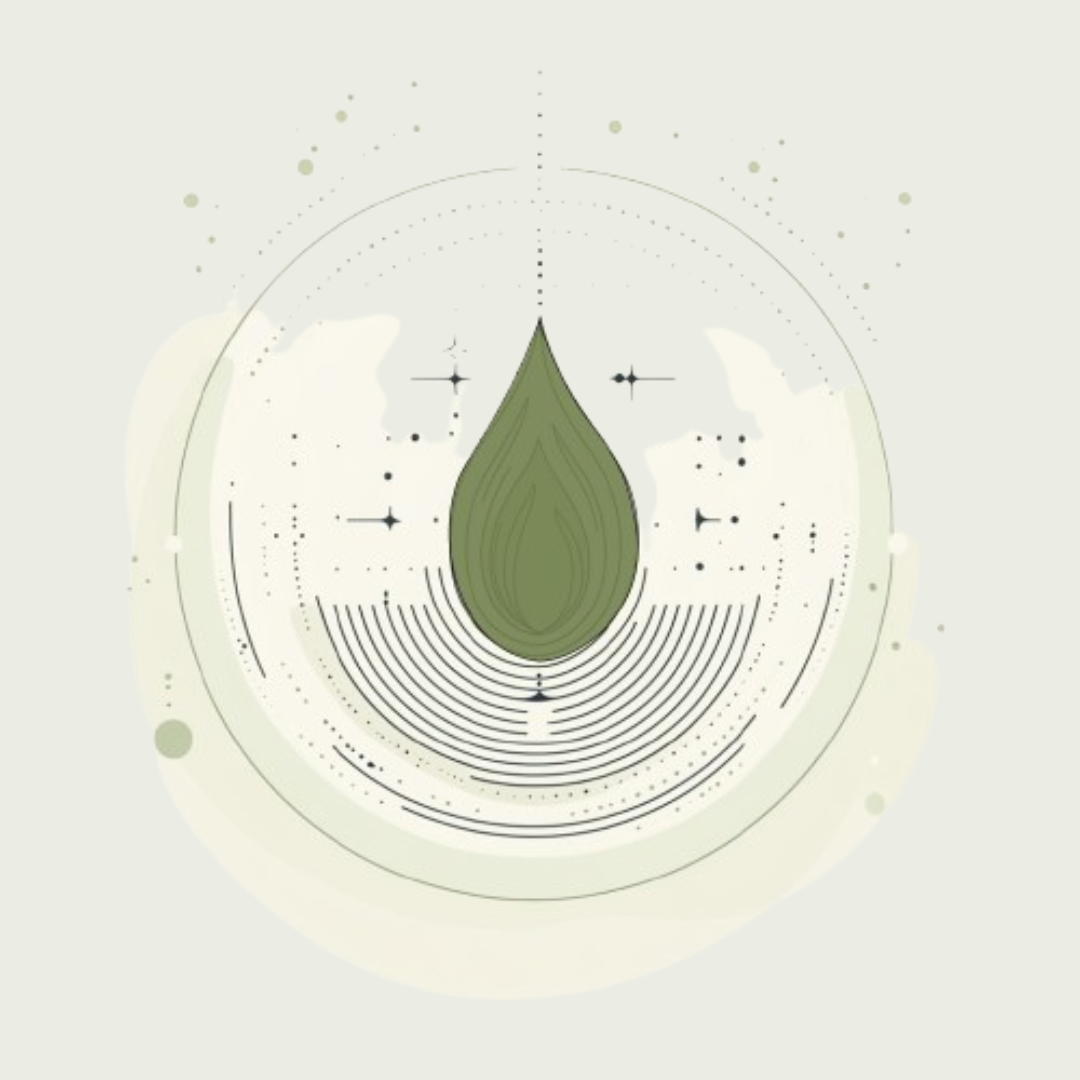Highlights
When we eat food with sugar content, the body is able to metabolise it successfully. Excess sugar is removed from the body naturally. Diabetes is a disease that causes excess sugar in the blood. It occurs because of the inability of the body to break down sugar. Excess blood sugar can be a serious problem. It can cause serious problems, including blindness, kidney failure, and stroke. Diabetes can start with increased blood sugar levels. To prevent diabetes, treatment needs to be given when blood sugar levels start to increase. Thanks to people eating more junk food and following a sedentary lifestyle, diabetes has become very common. Even children are falling prey to this lifestyle condition. Ayurveda looks at diabetes from a holistic approach. Ayurvedic medicine for diabetes along with dietary changes and lifestyle changes can help control blood sugar and help manage diabetes.
Diabetes and Types of Diabetes
Diabetes is a disease that causes increased levels of blood sugar. Glucose is present in most foods and in sugar. The body needs it to get energy. The body creates a substance called insulin that can break down glucose and allow it to be metabolised. When the body fails to produce insulin, then it leads to excess sugar levels in the blood.
Diabetes type 1 is a condition where the beta cells are destroyed and the body fails to produce insulin. This is a serious problem and insulin needs to be taken lifelong, so the body can metabolise sugar effectively. This condition cannot be prevented. It may be because of an autoimmune problem where the immune system attacks the beta cells mistakenly.
Diabetes type 2 is mostly a lifestyle disorder. Lack of exercise and poor dietary choices can lead to the malfunctioning of the cells that produce insulin. As a result, the insulin produced is not sufficient to break down glucose. This causes an increase in blood sugar levels. The diagnosis of diabetes is done as follows:
- The blood sugar level of more than 126 mg/dl in a fasting blood sugar test (done after the patient fasts for 8-10 hours) and post-prandial blood sugar level of more than 200 mg/dl (done 2 hours after the patient has a meal) is diagnosed as diabetes.
- If the fasting blood sugar is between 101 and 126 and the post-prandial blood sugar level is between 140 and 200 mg/dl, then this is termed pre-diabetes. This is a condition that can cause diabetes if immediate action is not taken. At this stage, lifestyle and diet changes are needed to prevent diabetes.
- Taking Ayurvedic tablet for diabetes can help lower blood sugar levels and possibly help bring them to normal levels (fasting blood sugar < 101 and post-prandial blood sugar < 140)
Symptoms of Diabetes
Increased blood sugar levels can damage cells in various parts of the body. It can damage nerves leading to serious problems. Some of the symptoms of diabetes are:
- Blurred vision
- Skin infections
- Increased thirst
- Excess urination
- Excessive hunger
- Weight loss that happens suddenly
- Difficulty in wounds healing properly
- Fatigue and exhaustion
- When blood sugar levels go too high, then it can cause many complications like:
- Glaucoma and blindness
- Nerve damage that can cause neuropathy, causing numbness in the feet
- Kidney disease that may lead to kidney failure
- Increase blood pressure that can lead to heart disease
- Stroke is a serious complication that can be fatal
Diabetes affects the nerves and is thus dangerous. It masks the symptoms of other diseases. Those who are diabetic may have other problems like heart problems or kidney problems. They won’t be able to feel the symptoms of these conditions because of excess blood sugar. There are many cases of people suffering a mild heart attack and not knowing about it because of high diabetes levels. This is why it is very important to keep blood sugar levels under control.
Ayurveda and Diabetes – Causes and Understanding the Ayurvedic Perspective
In Ayurveda diabetes is referred to as Madhumeha (literally meaning sweet urine). Diseases related to increased blood sugar are referred to as Prameha. Diabetes mellitus is referred to as Vata Prameha. It is caused due to an imbalance in the Vata Dosha (one of the three functional energies in the body). Diabetes insipidus is referred to as Kapha Prameha, occurring due to Kapha Dosha imbalance.
Diabetes is also classified as Avarana and Dhatukshaya. Avarana occurs due to blockage in the paths of channels. The blockage may be caused by aggravated Kapha. This is the cause of adult-onset diabetes. Dhatukshaya refers to the depletion of tissues in the body. This is the cause of juvenile diabetes.
According to Ayurveda, the causes of diabetes include:
- Being physically inactive
- Excessive sleep including sleeping during the daytime
- Eating too much sweet food
- Excessive use of curds
- Eating too many foods that cause an increase in Kapha
- Consuming meat soup
Ayurveda considers digestion to be a very important process. The effective working of the digestive system requires the digestive fire known as Agni to be working well. If this digestive fire is weakened (due to Dosha imbalance or other reasons), then it causes many problems. It causes a buildup of toxins that could affect the normal working of the body. It also weakens immunity and the body is not able to fight infections and diseases.
Ayurvedic Treatment for Diabetes
Ayurveda recommends the use of a holistic approach for the help in the management of diabetes. While conventional medical systems rely on medicines alone, Ayurveda recommends the use of a multi-prong approach. The management for diabetes in Ayurveda includes:
-
Use of remedies prepared from herbs.
-
Therapies help detoxify and help rejuvenate the body. This is needed in severe cases of diabetes.
-
Dietary changes.
-
Changes in lifestyle.
Let’s look at the dietary changes and lifestyle changes needed to help manage diabetes.
The diet we consume should be in accordance with our body constitution. When a person has diabetes, there is an aggravation of Kapha or Vata Dosha. Depending on the Dosha aggravated, the diet should help pacify the Dosha. The weather also must be considered while planning the diet.
The diet to pacify Kapha needed to help manage Diabetes type 2 would include:
- Eating foods that are light, dry, and warm and avoiding foods that are oily, cold, and heavy.
- Milk products aggravate the Kapha Dosha and it is better to avoid or reduce it. Low-fat milk products can be consumed. Ghee can be used in moderation as it helps to strengthen the digestive fire.
- The Kapha diet needs more beans and legumes. Moong beans, in particular, are very helpful for diabetes patients.
- Light fruits like apples, pomegranates, and berries can be eaten.
- Rice and wheat are heavy and difficult to break down. Light grains like millet and corn can be eaten.
- Spices should be used while cooking as they are good for Kapha Dosha. Pepper, mustard, garlic, and ginger must be included in the diet. Ginger tea is beneficial for digestion. Salt, however, should be avoided or taken in moderation.
- Ayurveda recommends avoiding meats as they may increase inflammation.
- Dietary control of blood sugar requires consuming warm food. Patients should drink warm water.
- Foods that are bitter helps in managing diabetes. Bitter gourd is an important vegetable that should be included in the diet. Turmeric is another important spice that should be included in the diet.
- Foods to be avoided are fried foods, tuber vegetables, soft drinks, fruits like mango, custard apple, dates, and banana should be avoided. Cakes, sugarcane products, and wine must be avoided.
Lifestyle changes are needed to ensure helpful management of diabetes. One of the main causes of diabetes is the lack of physical activity. This is why exercise is a must. Those who have prediabetes need to do a minimum of 150 minutes of moderate exercise a week. This will help in bringing blood sugar levels under control. Exercise can be done by taking a brisk walk, jogging, playing a sport that involves movement, cycling, or swimming. Obesity is one of the reasons for increased diabetes. Reducing weight is essential and exercise can help do this.
Ayurveda doctors recommend Yoga for helping blood sugar control. Yoga helps ensure the physical and mental improvement of health. This helps in managing diabetes in a natural way. The following are Yoga asanas that would be helpful for those suffering from diabetes:
-
Surya Namaskar or sun salutation is a series of yoga poses that help in burning calories and help to ensure fitness.
-
Paschimottasana is a seated forward bend that needs to be done.
-
Bridge pose or Setu Bandhasana is strongly recommended to be done daily.
-
Virabhadrasana or warrior pose is another good yoga asana.
-
Pavanamuktasana or wind relieving pose is helpful for diabetes patients.
-
Mayurasana or peacock pose is another useful asana.
Yoga should be ideally done under the supervision of a Yoga teacher. Along with Yoga, Pranayama or breathing exercises are strongly recommended. Bhastrika and Nadi shodhana helps in keeping blood sugar levels under control.
Ayurvedic Medicines for Diabetes and their Benefits
Ayurveda has many remedies that help in the management of diabetes. Taking an Ayurvedic medicine for diabetes type 2 can be helpful in keeping blood sugar under control. Diabetes type 2 can be helped to manage by taking a specific Ayurvedic tablet for sugar. Along with diet and lifestyle changes, these supplements help to reduce blood sugar levels to normal and help lead a healthy level.
Those having type 1 diabetes can help manage their blood sugar levels using the best ayurvedic medicine for type 1 diabetes. While type 1 diabetes cannot be cured, it is possible to help manage blood sugar levels.
One of the leading companies that manufactured some of the best tablet for diabetes is Kerala Ayurveda. This 75-year old company is known for making quality medicines. The products made by Kerala Ayurveda for diabetes patients and those who have pre-diabetes are:
-
Glymin tablet: This is a helpful tablet for diabetes patients. This is one of the best medicines for diabetes that help ensure glycemic balance. It helps keep blood sugar levels under control. It is helpful in ensuring proper glucose metabolism. Helping to maintain normal body weight can be easy by taking a Glymin tablet. It helps maintain a normal lipid profile. The tablet uses ingredients like Turmeric, amala, guduchi, and jamun that are powerful herbs that help reduce blood sugar.
-
Glymin plus tablet: This is an Ayurvedic medicine for diabetes patients that is stronger than Glymin. It has double the dose and is recommended to those who have very high blood sugar levels.
-
Glymin atta: This is a unique product that has a combination of grains with ingredients like amla and turmeric. This is a very helpful product for diabetes patients who can cook food using this flour. It is rich in fibers and helps support heart health.
-
Glymin diabetic drink: This is a powder containing herbs like Gokshura and Saptranga that help control blood sugar. It can be taken as a drink in-between meals to satisfy hunger pangs.
-
Sumehi capsules: This capsule is an Ayurvedic supplement for diabetics and can help reduce blood sugar levels. It helps in maintaining carbohydrate metabolism. This is helpful in ensuring weight loss. It is an antioxidant in nature and has a helpful rejuvenating effect. It helps ensure that the tissues get the nutrients required.
-
Varanadi Kwath tablet: This is a supplement that is helpful for weight loss. It is helpful in the management of diabetes and helps control blood sugar levels. It also helps strengthen the immune system.
-
Chandraprabha Gulika: These pills are helpful for the effective management of diabetes. It helps improve body metabolism. This helps ensure blood sugar levels are under control. It helps in treating obesity. It is helpful in improving kidney health.
-
Parthadyarishta: This is a heart tonic that helps in controlling blood sugar levels. It is one of the supplements that is helpful to manage diabetes.
Ingredients and Benefits
Some of the ingredients used to make Ayurvedic supplements and their benefits are given below:
-
Jambu (Syzygium cumini): Jambu or Jamun is known as Java plum. It is one of the most powerful fruits that is helpful in managing diabetes. This fruit has been used for centuries for helping to manage diabetes. It helps in controlling blood sugar levels. It has 82% water content and is thus recommended for diabetes patients and also those who want to help reduce body weight.
-
Turmeric (Curcuma longa): Turmeric is a common spice that has many health benefits. It contains an ingredient known as curcumin that is believed to be helpful in preventing type 2 diabetes. Turmeric can be used as a spice for cooking daily. It is used in Ayurvedic supplements as an ingredient as it helps stabilise blood glucose levels.
-
Gurmar (Gymnema sylvestre): Gurmar is a word that means sugar destroyer. It is a very popular herb that helps reduce blood sugar levels. It is believed to help curb cravings for sugar. Since its structure resembles that of sugar, it is believed to help balance insulin levels.
-
Amalaki (Emblica officinalis): Amla or Indian gooseberry is considered a super fruit. Amla offers multiple health benefits, which is why it is an ingredient in most Ayurvedic formulations. It is very helpful in managing blood sugar levels and helps reduce blood sugar. It is prescribed for use to help manage diabetes. It is an Ayurvedic medicine for diabetic retinopathy and can help manage the symptoms of this complication.
-
Asana (Pterocarpus marsupium): This is an Ayurvedic herb helpful in the management of diabetes. Its action is on the muscles. It helps improve the utilization of glucose by the muscles. This helps in controlling blood sugar levels.
-
Saptarang (Salacia chinensis): It is one of the well-known herbs that helps manage diabetes. It is anti-hyperlipidemic in nature. It helps manage blood sugar levels and helps ensure an optimum lipid profile. It is also helping in managing obesity.
-
Guduchi (Tinospora cordifolia): Also known as Giloy, this is one of the most powerful herbs helpful for diabetes control. It is a hypoglycemic agent that helps stimulate the body to help produce insulin. This helps in reducing blood sugar levels. It also helps the burning of excess blood glucose.
-
Neem (Azadirachta indica): Neem is an ingredient that is bitter and helps manage diabetes better. It helps in controlling blood sugar levels. Neem has glycosides and flavonoids that help in reducing blood glucose levels. Apart from its use in suppements, neem water is recommended to be consumed.
Your Turn to Make This Right
There is no doubt that Ayurveda helps to offer the best treatment for Ayurveda. The wellness approach of Ayurveda helps ensure good health. It recommends not just supplements but a proper diet and lifestyle changes through Yoga and Pranayama. All these measures help not just to keep blood sugar levels in control but also help ensure wellness. Ayurveda offers a safe and gentle approach to help the management of diabetes. If you or any of your family members suffer from diabetes, then you can choose the Ayurvedic approach by ordering Ayurvedic products. You can visit the e-store of Kerala Ayurveda to place your order. The products will be delivered to your home so you can help experience wellness naturally.




